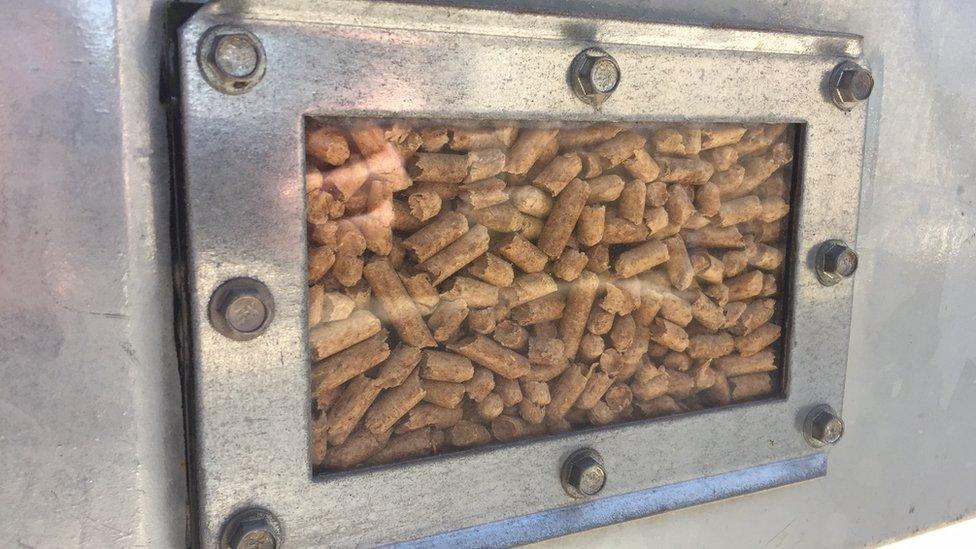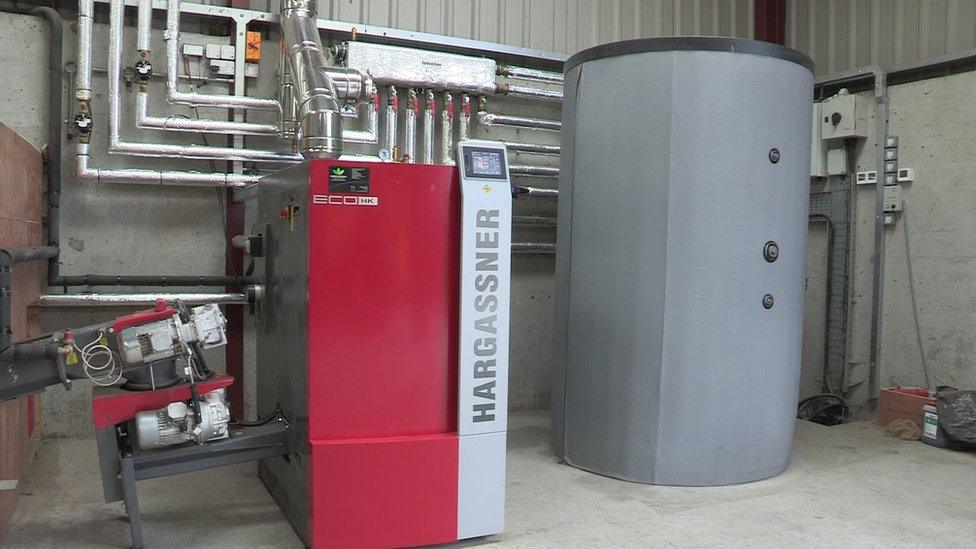RHI boiler owners' case could end in Supreme Court
- Published

The department agreed to a costs cap in both a failed High Court action by RHI boiler owners and an upcoming appeal
A decision on court costs means a Renewable Heat Incentive (RHI) scheme boiler owners' case against tariff cuts could end up in the Supreme Court.
The Department for the Economy has effectively abandoned an attempt to make them liable for hundreds of thousands of pounds of legal fees.
Instead, it has agreed to a costs cap in both a failed High Court action by RHI boiler owners and an upcoming appeal.
The owners lost the case in December.
Had boiler owners had to pay the department's full legal bill it would have severely limited their ability to fight on.
Now they will only be liable for £15,000.
The cap will also apply to the upcoming appeal of that High Court decision.
The agreement works both ways, meaning that should the department lose the upcoming appeal it will only be liable for £35,000 of the boiler owners' legal fees.
The Renewable Heat Association for Northern Ireland (RHANI) represents around half of RHI boiler owners.
It went to court to fight cuts to 20 year tariffs which the department claimed were necessary to prevent a huge overspend of public money.
'Ambush'
It lost when the high court ruled boiler owners' private interests were trumped by the public interest in preventing the overspend.
RHANI applied for cost protection at the start of their legal action under a mechanism called the Aarhus Convention.
It provides cost certainty for organisations challenging governments on environmental issues.

The RHI scheme subsidised the cost of claimants' fuel - mostly wood pellets - for running renewable heating systems
The Economy Department did not challenge it at the outset but later sought to have it set aside.
A barrister for RHANI described that as an "ambush" designed to leave them facing open ended costs.
The Economy Department said it had entered into a voluntary cost cap to limit its legal costs in the upcoming cases.
Direct rule minister
If RHANI loses the appeal they could seek to have the case heard in the Supreme Court.
Regulations which imposed the reduced tariffs are due to run out at the end of the month.
The department has said it intends to extend them for another year.
In the absence of an assembly that will require sign-off by a direct rule minister.
The green energy scheme subsidised the cost of fuel to encourage the use of renewable heating systems.
But the fuel cost far less than the subsidy users were receiving, meaning they could earn by burning more fuel.
- Published1 February 2018

- Published21 December 2017

- Published23 October 2019
